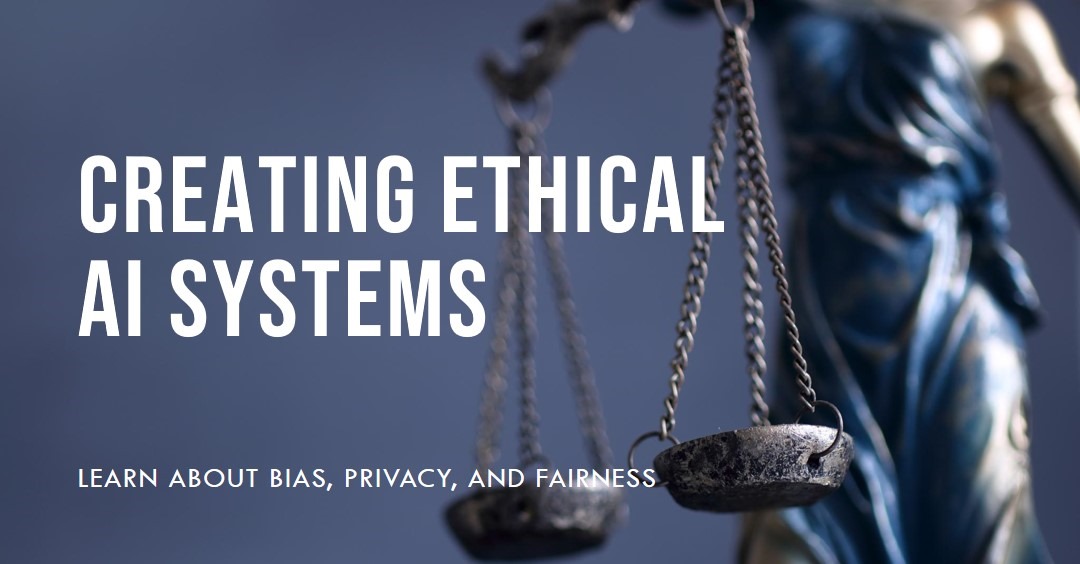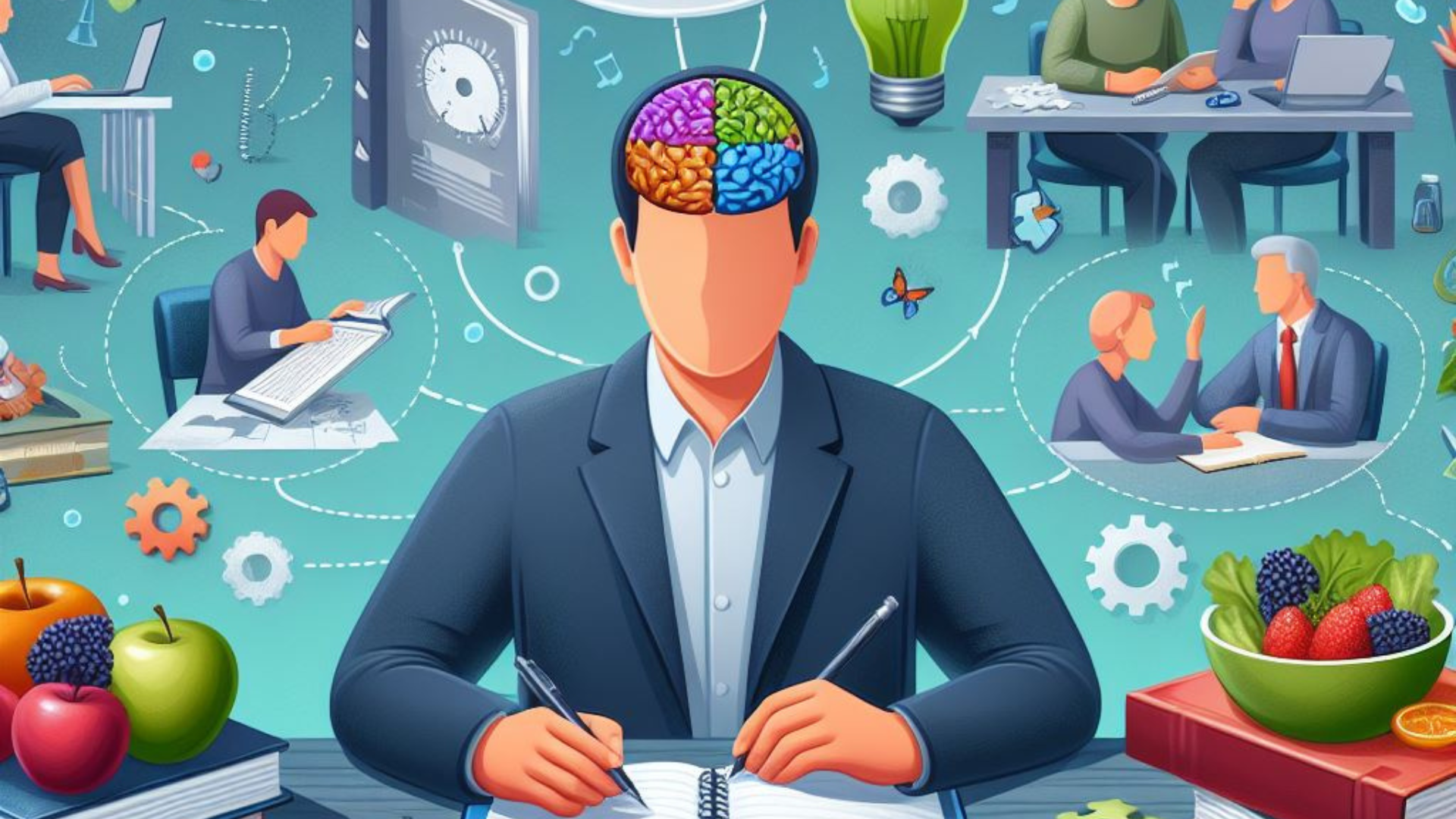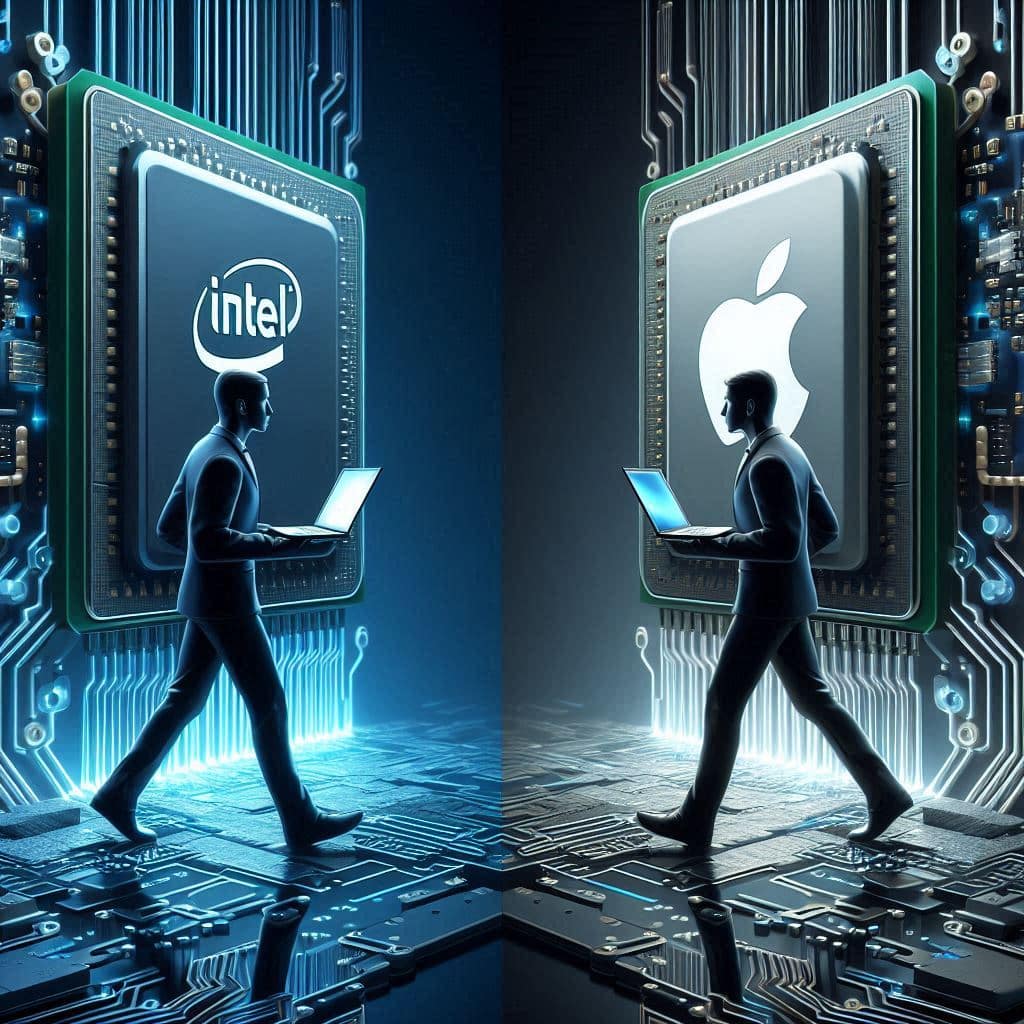Technology
Ethical AI Development: Building Trustworthy and Equitable Systems

AI is considered a revolutionary tool in the society of the twenty-first century; at the same time, it has precipitated certain ethical issues. Among the most fundamental issues are bias, infringement on privacy, and unfairness in employing algorithms. This paper seeks to describe the above challenges and gives a view on how to develop ethical AI that can enhance the life of anyone in the society.
The Pitfalls of Bias
AI systems particularly those that depend on machine learning are at risk of biases.
- Data Bias: If the training data used is not real-world data, then what will be achieved are not real results in most cases. For instance, a facial recognition system trained from one ethnicity data set could not perform well on others.
- Algorithmic Bias: It is also relevant to notice that bias can also be attributed to the design of the algorithm. That is some of them may be inclined to support some features or tendencies and exclude others at the same time.
- Human Bias: One risk is that the developers themselves will bring their own bias into how the design and implementation of the system is being done.
It has been evident that bias in an AI can lead to so many issues. They can perpetrate social inequality, lead to bias in some areas such as credit or justice, and have a poor effect on the adoption of technology.
Privacy and Artificial Intelligence
As AI is becoming more intimate with human lives, the protection of users’ data should not be ignored. Concerns arise in relation to the origin, handling, and utilisation of the data required by most AI systems.
Accountability in the application of algorithms
Automated decision making is on the increase be it in approvals of loans or employment of employees.
- Promote Transparency: Understanding why an AI system made a specific decision is necessary. This is where the interventions of explainable artificial intelligence can help the user to know why such decisions are made.
- Develop Fairness Metrics: There is a need to evaluate the bias in the AI systems as well as the equity across different demographic sections.
- Prioritise Diverse Representation: There is also a recommendation that formation of AI development teams should be diverse and the training data should reflect the target population that the technology is going to be directed to.
Ethical Artificial Intelligence for a better tomorrow
To curb these challenges, the following measures should be taken. Therefore, it is crucial to mark that ethical issues have to be implemented throughout all steps of AI creation. Thus, it is high time to outline a set of rules and helpful strategies for AI use in governments and organisations. .Finally, it is important to involve citizens in the discussion of AI-related problems and its implications.
In this way, we stimulate the possibility to improve ethical aspects of AI and its application for people’s lives’ improvement all around the world.
FAQs on Ethical AI Development
1. Is AI biased? How is it that one can have a negative influence on the people?
- Nevertheless, AI predeterminations can be bias similarly if the data and set theory used is bias towards a specific demographic. This may bring about injustice in the sense that for example, a candidate is declined for a loan when he or she should be granted a loan or again on the other end of the spectrum a candidate that should not be pursued by the police is in fact being pursued by the police.
2. What guidelines can help make AI decision making fair?
- In this way, AI can be less prejudiced by presenting more non-ambiguous and, therefore, non-prejudiced data, making decisions more easily understandable and engaging racially diverse designers.
3. What is the use of Explainable AI or ‘XAI’ and why is it important?
- XAI helps determine why an AI model is making specific choices. It helps in eradicating bias and building trust in AI especially when it is used in making crucial decisions.
4. Will AI development compromise my privacy?
- Ethical AI development should! They require that AI has mechanisms on how it processes and utilises the data we provide it with. People have the right to understand what information is collected and have the power to decide how it would be used. Another feature of strong security is the protection of the individual’s personal information.
5. Who is the one to decide that the AI is ethical?
- Everyone has a role! It follows that developers have to create AI morally, governments set definite laws, and everyone engages in open discourse to ensure AI does not harm any party while helping each.
Technology
Harnessing Solar Power On-the-Go: The Rise of Foldable Solar Panel Installations

In the ever-evolving landscape of renewable energy, innovations continue to pave the way for accessible and sustainable solutions. One such innovation gaining momentum is the installation of foldable solar panels, revolutionizing how we harness solar power, especially in mobile and off-grid settings. Let’s explore the versatility, benefits, and installation process of these portable solar solutions.
Versatility and Portability:
Foldable solar panels offer unparalleled versatility, making them ideal for various applications, including camping, RV travel, boating, and emergency preparedness. Their lightweight and compact design allows for easy transport and storage, enabling users to access solar power wherever they go. Whether you’re exploring remote wilderness or enjoying a beachside vacation, foldable solar panels provide a reliable source of clean energy.
Efficiency and Performance:
Despite their portable nature, foldable solar panels boast impressive efficiency and performance levels. Utilizing advanced photovoltaic technology, these panels can efficiently convert sunlight into electricity, even in partially shaded or low-light conditions. With optimal positioning and exposure to sunlight, foldable solar panels can generate sufficient power to charge batteries, run electronic devices, and power small appliances, offering convenience and peace of mind.
Installation Process:
Installing foldable solar panels is a straightforward process that requires minimal effort and technical expertise. Most foldable panels come equipped with built-in mounting hardware or grommets, allowing for easy attachment to various surfaces such as tents, RV roofs, backpacks, or ground stands. Simply unfold the panels, position them in a sunny location, and connect them to your desired power source or storage device using compatible cables and connectors.
Benefits of Foldable Solar Panel Installations:
Off-Grid Power Supply: Foldable solar panels provide a reliable off-grid power supply, enabling users to access electricity in remote or off-grid locations where traditional power sources are unavailable.
Environmentally Friendly: Harnessing solar energy reduces reliance on fossil fuels and minimizes carbon emissions, contributing to a cleaner and more sustainable environment.
Cost-Effective: While initial investment costs may vary, foldable solar panels offer long-term savings by reducing energy bills and eliminating the need for disposable batteries or fuel.
Emergency Preparedness: Foldable solar panels serve as invaluable assets during emergencies or natural disasters, providing a source of power for communication devices, medical equipment, and essential appliances.
Versatility and Mobility: The portable nature of foldable solar panels allows for flexibility and mobility, catering to a wide range of outdoor activities and lifestyles.
Conclusion
foldable solar panel installations represent a significant advancement in renewable energy technology, offering portable, efficient, and sustainable solutions for on-the-go power generation. As we continue to embrace clean energy alternatives, foldable solar panels pave the way for a brighter and more sustainable future.
Appliances
A World of Opulence: The Most Expensive Mechanical and Smart expensive watches for Men and Women

A World of Opulence: The Most Expensive Mechanical and Smart expensive watches for Men and Women Luxury watches pass past mere timekeeping; they’re extremely good statements of workmanship, technology, and style. This article delves into the world’s maximum high-priced mechanical and smart watches, showcasing ten masterpieces for each males and females in every elegance. From the problematic mechanics of mechanical watches to the contemporary-day era of smartwatches, we discover the attraction, features, and unique developments that make those timepieces stand out within the realm.
Mechanical Marvels: High-End Timepieces for Men expensive watches
- Patek Philippe Grandmaster Chime Ref. 6300A-010
Price: ~$31 Million
Specifications:
Movement: Caliber three hundred Grand Complication
Functions: 20 complications including a grand strike, minute repeater, and Westminster chime
Case: Stainless metallic with a duration of forty seven.7 mm
Dial: Reverse hand-engraved with a silvery opaline finish
Power Reserve: Approximately seventy two hours
Features:
The Patek Philippe Grandmaster Chime Ref. 6300A-010 is the undisputed king of steeply-priced watches, retaining the report for the most pricey wristwatch ever sold at public sale. This timepiece features 20 complications, such as a grand strike with a minute repeater, a perpetual calendar, and a Westminster chime. The hard hand-engraved dial, coupled with the chrome steel case, showcases Patek Philippe’s mastery in blending conventional craftsmanship with progressive engineering. This watch is not only a timekeeper but a symphony of horological genius, making it a coveted gem for creditors worldwide.
- A. Lange & Söhne Double Split
Price: ~$1.Three Million
Specifications:
Movement: Caliber L001.2, manually wound
Functions: Split-seconds chronograph, perpetual calendar, moon section
Case: Pink gold, diameter of 41.Nine mm
Dial: Silvered dial with black engraved numerals
Power Reserve: Approximately 55 hours
Features:
The A. Lange & Söhne Double Split is a masterpiece that combines sophisticated layout with technical prowess. It boasts a break up-seconds chronograph, a perpetual calendar, and a moon phase complication. Housed in a beautiful purple gold case, its silvered dial with black engraved numerals enhances its traditional appeal. The double split function lets in for simultaneous time measurements, making it a favorite among severe watch connoisseurs. This watch exemplifies the logo’s determination to precision and beauty, making it a image of reputation and sophistication.
- Richard Mille RM fifty seven-03 Tourbillon Diamond Twister
Price: ~$820,000
Specifications:
Movement: RM 57-03 manual winding, tourbillon
Functions: Hours, mins, tourbillon
Case: Titanium and sapphire crystal with diamonds
Dial: Sapphire crystal with skeletonized tourbillon
Power Reserve: Approximately 50 hours
Features:
The Richard Mille RM fifty seven-03 Tourbillon Diamond Twister is a surprise of engineering and layout. Its innovative crown rotates 100 and twenty levels to wind the motion, a function that devices it other than traditional watches. The case is adorned with diamonds, showcasing Richard Mille’s aptitude for combining opulence with technical innovation. The skeletonized dial offers a clear view of the complex tourbillon movement, emphasizing the watch’s avant-garde attraction. This timepiece isn’t most effective a testomony to Richard Mille’s craftsmanship but also a photo of futuristic design and comfort.
Four. Vacheron Constantin Tour de l’Ile
Price: ~$1.Five Million
Specifications:
Movement: Caliber 2755, manual winding
Functions: 26 headaches, which includes perpetual calendar, sky chart, and equation of time
Case: Platinum, diameter of forty seven mm
Dial: Silvered opaline with guilloché decoration
Power Reserve: Approximately fifty eight hours
Features:
The Vacheron Constantin Tour de l’Ile is a masterpiece of watchmaking with 26 complications, making it one of the maximum complex wristwatches inside the international. It capabilities a perpetual calendar, a sky chart, and an equation of time, among other capabilities. The platinum case with a diameter of 47 mm and the silvered opaline dial with guilloché decoration highlight its expensive format. This watch is a actual engineering marvel, blending artistry with horological innovation. The Tour de l’Ile is a party of Vacheron Constantin’s historical past and understanding in developing first-rate timepieces.
- Roger Dubuis Excalibur Double Flying Tourbillon
Price: ~$390,000
Specifications:
Movement: RD01SQ, manually wound
Functions: Hours, mins, double flying tourbillon
Case: forty five mm titanium with purple gold factors
Dial: Skeletonized with pink gold and black accents
Power Reserve: Approximately 48 hours
Features:
The Roger Dubuis Excalibur Double Flying Tourbillon is a actual feat of horological engineering. It features two tourbillons that negate the consequences of gravity on the motion, improving its accuracy. The skeletonized dial with purple gold and black accents offers a fascinating view of the complicated mechanism. Housed in a forty five mm titanium case with pink gold elements, this watch exudes a ambitious, avant-garde aesthetic. The Excalibur Double Flying Tourbillon is a testament to Roger Dubuis’s dedication to pushing the bounds of watchmaking.
- Greubel Forsey Art Piece Edition 1
Price: ~$1.5 Million
Specifications:
Movement: Caliber GF01, manually wound
Functions: Three-dimensional tourbillon, round differential, and planetary tools
Case: 47.5 mm platinum with sapphire crystal
Dial: Sapphire crystal with 3-dimensional tourbillon
Power Reserve: Approximately seventy hours
Features:
The Greubel Forsey Art Piece Edition 1 is a masterpiece of contemporary watchmaking, offering a three-dimensional tourbillon, a spherical differential, and a planetary tools machine. The 47.Five mm platinum case with sapphire crystal presents a striking view of the motion. The sapphire crystal dial complements the transparency, allowing the difficult mechanics to be completely preferred. This watch is a mix of art work and technological know-how, showcasing Greubel Forsey’s innovative spirit and dedication to pushing the boundaries of horological design.
- Audemars Piguet Royal Oak Offshore Grande Complication
Price: ~$1.Eight Million
Specifications:
Movement: Caliber 2889, manual winding
Functions: Minute repeater, perpetual calendar, chronograph
Case: 44 mm platinum with rubber and gold accents
Dial: Black with blue accents and skeletonized fingers
Power Reserve: Approximately 45 hours
Features:
The Audemars Piguet Royal Oak Offshore Grande Complication is a stunning mixture of sportiness and sophistication. It functions a minute repeater, a perpetual calendar, and a chronograph, all housed in a forty four mm platinum case with rubber and gold accents. The black dial with blue accents and skeletonized fingers gives to its ambitious, current look. This watch is a image of Audemars Piguet’s legacy in developing ultra-modern, excessive-performance timepieces that integrate conventional craftsmanship with modern format.
Eight. Hublot Big Bang Tourbillon
Price: ~$500,000
Specifications:
Movement: HUB6010, guide winding
Functions: Hours, minutes, tourbillon
Case: 45 mm titanium with ceramic bezel
Dial: Skeletonized with black and crimson accents
Power Reserve: Approximately a hundred and twenty hours
Features:
The Hublot Big Bang Tourbillon is a super fusion of technology and layout. It features a manually wound HUB6010 motion with a tourbillon, housed in a 45 mm titanium case with a ceramic bezel. The skeletonized dial with black and red accents gives a dramatic view of the tourbillon mechanism. This watch is a testomony to Hublot’s innovation in blending materials and mechanics, creating a timepiece this is each beneficial and visually lovely.
- Breguet Classique Tourbillon Ref. 5377
Price: ~$three hundred,000
Specifications:
Movement: Caliber 581, manually wound
Functions: Tourbillon, hours, minutes
Case: forty one mm platinum
Dial: Silvered gold with hand-engraved information
Power Reserve: Approximately eighty hours
Features:
The Breguet Classique Tourbillon Ref. 5377 is a classic example of Breguet’s determination to standard watchmaking. It talents a manually wound Caliber 581 motion with a tourbillon, housed in a forty one mm platinum case. The silvered gold dial with hand-engraved info showcases Breguet’s signature fashion and craftsmanship. This watch is a celebration of Breguet’s wealthy history, providing an excellent mixture of beauty, precision, and undying beauty.
- F.P. Journe Chronomètre à Résonance
Price: ~$3 hundred,000
Specifications:
Movement: Caliber 1499.Three, manually wound
Functions: Hours, minutes, chronometer with resonance
Case: 40 mm platinum
Dial: Silvered gold with guilloché ornament
Power Reserve: Approximately forty hours
Features:
The F.P. Journe Chronomètre à Résonance is a masterpiece of precision and innovation. It capabilities a manually wound Caliber 1499.Three movement with a resonance chronometer, housed in a forty mm platinum case. The silvered gold dial with guilloché ornament presentations F.P. Journe’s dedication to conventional craftsmanship and aesthetic refinement. This watch is renowned for its precise resonance mechanism, which enhances accuracy with the resource of synchronizing the vibrations of stability wheels. The Chronomètre à Résonance exemplifies F.P. Journe’s pursuit of horological excellence and technical ingenuity.

For the Ladies: Exquisite Mechanical Wristwatches
- Cartier Tortue de Formes Phoenix
Price: ~$1.Four Million
Specifications:
Movement: Caliber 9602 MC, guide winding
Functions: Hours, mins
Case: Platinum with gemstones and feathers
Dial: Silvered opaline with guilloché decoration
Power Reserve: Approximately 48 hours
Features:
The Cartier Tortue de Formes Phoenix is a real masterpiece of artistry and engineering. Its platinum case is formed like a phoenix, embellished with colorful gems and feathers. The silvered opaline dial with guilloché decoration affords to its pricey enchantment. This watch is a testament to Cartier’s statistics in combining high earrings with outstanding watchmaking, growing a timepiece that is as lovable as it’s miles state-of-the-art. The Tortue de Formes Phoenix is a rare gem that embodies Cartier’s legacy of beauty and innovation.
- Van Cleef & Arpels Heures d’Elles Poetic Complications
Price: ~$230,000
Specifications:
Movement: Caliber 138, automatic winding
Functions: Hours, minutes, retrograde date, moon stages
Case: White gold with diamonds
Dial: Mother-of-pearl with enamel butterfly and bird motifs
Power Reserve: Approximately 40 hours
Features:
The Van Cleef & Arpels Heures d’Elles Poetic Complications is a party of femininity and resourceful expression. Its white gold case is decorated with diamonds, growing a shimmering backdrop for the mom-of-pearl dial. The dial functions tooth butterfly and chook motifs that indicate the time and display retrograde date and moon stages. This watch is a testament to Van Cleef & Arpels’ mastery in creating poetic headaches that integrate aesthetic splendor with technical precision. The Heures d’Elles Poetic Complications is a real work of art that captures the essence of time via captivating layout.
Three. Breguet Reine de Naples 8998
Price: ~$one hundred and 80,000
Specifications:
Movement: Caliber 537/1, automatic winding
Functions: Hours, minutes, day-night time indicator, moon phase
Case: White gold with diamonds, 36.Five x 28.Forty five mm
Dial: Natural white mother-of-pearl, hand-engraved with floral motifs
Power Reserve: Approximately 45 hours
Features:
The Breguet Reine de Naples 8998 is a symbol of timeless elegance and class. Its oval case in white gold is embellished with diamonds, including to its high-priced attraction. The natural white mother-of-pearl dial is hand-engraved with sensitive floral motifs, showcasing Breguet’s interest to element and craftsmanship. This watch capabilities a day-night time indicator and a moon phase hardship, combining practical functionality with brilliant design. The Reine de Naples 8998 is a tribute to Queen Caroline Murat of Naples, who stimulated Abraham-Louis Breguet to create the first wristwatch, making it a image of Breguet’s rich background and innovation.
Four. Audemars Piguet Millenary Minute Repeater
Price: ~$four hundred,000
Specifications:
Movement: Caliber 2928, manual winding
Functions: Hours, minutes, minute repeater
Case: 47 mm pink gold with sapphire crystal
Dial: Skeletonized with pink gold hands
Power Reserve: Approximately 48 hours
Features:
The Audemars Piguet Millenary Minute Repeater is a masterpiece of watchmaking craftsmanship. It capabilities a minute repeater problem housed in a forty seven mm purple gold case with sapphire crystal, imparting a glimpse into the complex mechanics of the movement. The skeletonized dial with crimson gold palms complements its present day-day aesthetic while showcasing Audemars Piguet’s commitment to blending way of life with innovation. This watch is a testomony to the emblem’s know-how in growing immoderate-performance timepieces that enchantment to every connoisseurs and creditors.
Five. Jaeger-LeCoultre Rendez-Vous Celestial
Price: ~$a hundred fifty,000
Specifications:
Movement: Caliber 809/1, automated winding
Functions: Hours, mins, celestial problem
Case: White gold with diamonds, 36 mm
Dial: Blue aventurine with diamond-set constellations
Power Reserve: Approximately 40 hours
Features:
The Jaeger-LeCoultre Rendez-Vous Celestial is a celestial marvel that mixes horological artistry with astronomical precision. Its white gold case is decorated with diamonds, including a touch of brilliance to its fashionable format. The blue aventurine dial depicts the night time sky, with diamond-set constellations that tune the passage of time. This watch capabilities Jaeger-LeCoultre’s automatic Caliber 809/1 movement, supplying specific timekeeping and celestial indicators. The Rendez-Vous Celestial is a tribute to the splendor of the cosmos, making it a timeless companion for those who recognize each art and technological expertise.
The Tech Touch: Luxurious Smartwatches
For Her:
- Louis Vuitton Tambour Horizon Light Up expensive watches
Price: ~$3,three hundred
Specifications:
Operating System: Wear OS with the aid of Google
Processor: Qualcomm Snapdragon Wear 3100
Display: 1.3″ AMOLED with mother-of-pearl and customizable straps
Connectivity: Wi-Fi, Bluetooth, GPS
Case: Stainless metal with diamonds, 35 mm
Features: Notifications, activity monitoring, Louis Vuitton distinct watch faces
Features:
The Louis Vuitton Tambour Horizon Light Up smartwatch combines luxurious with current era. It features a 1.Three” AMOLED display with a mother-of-pearl dial and customizable straps, taking into account personalized style. Powered with the aid of manner of Wear OS with the aid of Google and Qualcomm Snapdragon Wear 3100, it offers seamless connectivity with Wi-Fi, Bluetooth, and GPS skills. The stainless-steel case with diamonds gives a hint of beauty, making it a statement piece for fashion-in advance human beings. With specific Louis Vuitton watch faces and vital clever features like notifications and hobby monitoring, the Tambour Horizon Light Up smartwatch is a mixture of favor and capability.
- Gucci Serena Sport expensive watches
Price: ~$1,300
Specifications:
Operating System: Wear OS via Google
Processor: Qualcomm Snapdragon Wear 3100
Display: 1.39″ AMOLED with customizable straps
Connectivity: Wi-Fi, Bluetooth, GPS
Case: Stainless steel with interchangeable straps
Features: Fitness tracking, heart rate monitoring, Gucci distinctive watch faces
Features:
The Gucci Serena Sport smartwatch is a fusion of sporty beauty and Italian luxurious. It talents a 1.39″ AMOLED display with customizable straps, taking into consideration a customized contact. Powered by way of the use of Wear OS via Google and Qualcomm Snapdragon Wear 3100, it ensures smooth overall performance and connectivity with Wi-Fi, Bluetooth, and GPS competencies. The chrome steel case with interchangeable straps offers versatility, at the same time as Gucci’s special watch faces add a wonderful aptitude. With advanced functions like health monitoring and coronary heart price monitoring, the Serena Sport smartwatch is designed for people who prioritize each style and capability of their accessories.
- Hermès Apple Watch Series 8
Price: Varies relying on version and band expensive watches
Specifications:
Operating System: watchOS
Processor: Apple S8 chip
Display: Retina LTPO OLED, sizes range
Connectivity: Wi-Fi, Bluetooth, GPS
Case: Stainless steel or titanium with Hermès leather-based bands
Features: Apple Pay, Siri, Hermès one of a type watch faces
Features:
The Hermès Apple Watch Series eight combines modern-day technology with undying Parisian beauty. Available in severa models and bands made from superb leathers, it gives a customizable revel in that blends seamlessly into any cloth wardrobe. Powered by means of the use of the Apple S8 chip and watchOS, it offers you speedy performance and a responsive person interface. The Retina LTPO OLED show offers colourful visuals, whilst features like Apple Pay and Siri enhance comfort. Hermès one of a kind watch faces add a touch of sophistication, making the Apple Watch Series eight a assertion of highly-priced and innovation.
- Misfit Vapor 2 Stella McCartney
Price: ~$3 hundred
Specifications:
Operating System: Wear OS by using the use of Google
Processor: Qualcomm Snapdragon Wear 2100
Display: 1.2″ AMOLED with customizable straps
Connectivity: Wi-Fi, Bluetooth, GPS
Case: Aluminum with interchangeable straps
Features: Heart rate tracking, hobby tracking, Misfit one-of-a-kind watch faces
Features:
The Misfit Vapor 2 Stella McCartney smartwatch is a collaboration among Misfit and fashion icon Stella McCartney. It combines style-forward layout with essential health and well being features, making it a versatile accent for everyday use. Powered via Wear OS through Google and Qualcomm Snapdragon Wear 2100, it guarantees smooth performance and connectivity with Wi-Fi, Bluetooth, and GPS capabilities. The aluminum case with interchangeable straps gives sturdiness and fashion, at the equal time as Misfit’s one of a type watch faces cater to character tastes. Whether tracking fitness dreams or staying related on the cross, the Vapor 2 Stella McCartney smartwatch blends function with fashion.
Five. Bvlgari Diva’s Dream smart expensive watches
Price: ~$6,800
Specifications:
Operating System: Wear OS through way of Google
Processor: Qualcomm Snapdragon Wear 3100
Display: 1.19″ AMOLED with ceramic and diamonds
Connectivity: Wi-Fi, Bluetooth, GPS
Case: Ceramic with diamond accents, 37 mm
Features: Notifications, interest tracking, Bvlgari unique watch faces
Features:
The Bvlgari Diva’s Dream smartwatch is a jewel at the wrist, combining costly with cutting-edge technology. Crafted from ceramic and embellished with diamonds, its aesthetic attraction is unprecedented. Powered via Wear OS through Google and Qualcomm Snapdragon Wear 3100, it gives seamless connectivity with Wi-Fi, Bluetooth, and GPS competencies. The ceramic case with diamond accents exudes sophistication, making it a declaration piece for discerning individuals. With important smart capabilities like notifications and interest tracking, in addition to Bvlgari’s one in every of a type watch faces, the Diva’s Dream smartwatch is a picture of beauty and innovation.
Conclusion
This article has explored the area of opulent timepieces, from the complicated mechanics of high-stop mechanical watches to the present day technology of costly smartwatches. Each timepiece featured embodies craftsmanship, innovation, and fashion, catering to the discerning tastes of watch aficionados global. Whether you’re captivated through the tricky headaches of a mechanical masterpiece or the seamless integration of technology in a smartwatch, those watches provide a glimpse into the arena of haute horlogerie. Each watch tells a tale of lifestyle, innovation, and timeless splendor, making it not most effective a timekeeper however a chunk of artwork.
Appliances
Exploring the Most expensive smartphones in the World

In modern-day interconnected world, expensive smartphones have transcended their utilitarian origins to become symbols of reputation, luxurious, and modern generation. This article embarks on a comprehensive journey through the realm of the arena’s priciest smartphones, meticulously examining their talents, specs, and the huge worldwide carrier networks that guide them. Whether you’re a tech fanatic, a connoisseur of luxury, or virtually interested in the top of cell innovation, this manual will immerse you within the complicated information of the most extravagant smartphones available today.
Defining Luxury expensive smartphones in Mobile Phones
Luxury inside the realm of expensive smartphones is an amalgamation of functionality, remarkable layout, top rate materials, and notable features tailor-made for the discerning few. It represents a mix of technological prowess and artisanal craftsmanship, in which manufacturers spare no cost in pushing the boundaries of what a cellphone can reap. These gadgets are not just equipment; they are statements of opulence and sophistication, catering completely to people who demand not anything but the excellent.
Luxury smartphones are characterized through their exceptional materials and meticulous craftsmanship. Materials along with aerospace-grade titanium, ceramic, carbon fiber, or even valuable metals like gold and platinum are normally used. These materials now not best beautify the durability of the devices however also lend a completely unique aesthetic attraction, placing them aside from mainstream smartphones. Designers pay meticulous interest to element, from the ergonomic contours that match perfectly in hand to the tricky engravings and custom finishes that mirror the owner’s non-public fashion.
The Evolution of Luxury Phones Across Decades
The concept of luxurious telephones has advanced appreciably over the decades, reflecting modifications in technology, purchaser options, and global monetary tendencies. Early luxurious telephones pioneered by using manufacturers like Vertu and Goldvish showcased extravagant designs crafted from materials which includes gold, silver, and special leathers. These devices were characterised not most effective with the aid of their top rate build nice however additionally by means of their one of a kind services tailor-made for affluent shoppers.
As technology stepped forward, luxurious expensive smartphones commenced integrating contemporary features alongside costly materials. This evolution reflected broader developments in purchaser electronics, in which smartphones have become extra than simply conversation devices but additionally repute symbols. The transition from simple capability to excessive-performance computing machines underscored a shift toward blending opulence with technological innovation.
Pioneers within the Luxury Phone Market
The adventure into luxury expensive smartphones started out with trailblazers like Vertu, based in 1998 as a subsidiary of Nokia. Vertu fast established itself via presenting hand made phones embellished with valuable metals and gem stones, coupled with a concierge carrier that catered to the whims of its rich purchasers. Each Vertu smartphone was a testament to bespoke luxury, combining traditional craftsmanship with cutting-edge era.
Similarly, Goldvish emerged as another pioneer, that specialize in phones embellished with diamonds and uncommon materials. Founded in Switzerland, Goldvish epitomized European craftsmanship and exclusivity, appealing to creditors and aficionados in search of one-of-a-kind luxury devices. These early innovators set the stage for the convergence of luxurious and technology in the cell phone industry.
Modern Era: Integrating Technology with Luxury expensive smartphones
In current years, mainstream expensive smartphones giants which include Apple, Samsung, and Huawei have ventured into the posh phase, offering devices that blend state-of-the-art era with premium materials. This shift has democratized luxurious telephones to a point, making excessive-quit capabilities more available whilst preserving exclusivity through restrained variations and bespoke customization alternatives.
Luxury variations of famous smartphones regularly characteristic stronger specifications, one-of-a-kind finishes, and personalised offerings that cater to the tastes of affluent purchasers. These gadgets now not handiest showcase the ultra-modern improvements in cell era however additionally spotlight the craftsmanship involved of their design and manufacturing. From bespoke software interfaces to custom-designed accessories, luxurious smartphones redefine personalization in consumer electronics.
Features and Specifications of the Most Expensive Phones expensive smartphones
When exploring the arena’s maximum pricey expensive smartphones, every tool represents a marvel of engineering, design, and technological innovation. These devices pass beyond conventional smartphones, supplying capabilities that redefine person expectancies and set new benchmarks within the industry.
Advanced Display Technologies
The display serves as a focal point for luxury expensive smartphones, presenting advancements along with OLED (Organic Light-Emitting Diode) and AMOLED (Active Matrix Organic Light-Emitting Diode) technology. These presentations offer colourful colorings, deep blacks, and power efficiency, enhancing both visible experiences and battery existence. Some luxury telephones even include bendy display technologies that curve elegantly across the device, similarly raising their aesthetic attraction.
State-of-the-Art Camera Systems
The photography talents of luxurious expensive smartphones rival those of professional cameras, thanks to excessive-resolution sensors, advanced optics, and complicated photograph processing algorithms. Multi-lens setups, including telephoto, extensive-angle, and macro lenses, enable users to capture designated shots in numerous lighting conditions. Artificial Intelligence (AI) upgrades similarly optimize snap shots, making sure first rate readability and realism in every photo.
Exceptional Performance expensive smartphones
Luxury telephones prioritize overall performance with the state-of-the-art-generation processors, enough RAM (Random Access Memory), and expansive storage options. These specifications not most effective assist annoying programs like gaming and multimedia editing however also ensure a seamless person experience. High-performance portraits processors and AI accelerators beautify gaming and augmented reality (AR) stories, making luxury phones flexible tools for both productivity and leisure.
Design Excellence and Premium Materials
Crafted from substances inclusive of aerospace-grade titanium, ceramic, and scratch-resistant sapphire glass, luxurious phones combine sturdiness with elegance. Designers meticulously refine each thing of those gadgets, from ergonomic contours to tricky floor finishes, developing works of artwork that resonate with luxurious and sophistication. Custom finishes, along with hand-polished metallic frames and leather-wrapped backs, mirror a commitment to craftsmanship and exclusivity.
Global Service Networks
Owning a luxurious expensive smartphones includes more than possessing a premium device; it involves get entry to to a complete assist and provider ecosystem that spans continents. Manufacturers apprehend the significance of worldwide reach, ensuring that customers acquire spark off assistance and customized care wherever they will be placed.
Service Excellence Across Continents
In North America, luxurious telephone provider centers are strategically positioned in essential metropolitan regions, providing personalized assist and expedited restore offerings. Brands prioritize client pleasure through offering concierge offerings for VIP customers, ensuring that their gadgets acquire meticulous attention and care.
European Heritage of Craftsmanship
Europe boasts a rich heritage of craftsmanship, meditated in the meticulous provider supplied for luxurious telephones. Service centers combination conventional expertise with present day diagnostics, making certain that every device is maintained to the highest requirements. Whether repairing difficult hardware or updating bespoke software program functions, European carrier facilities uphold a legacy of excellence and attention to element.

Technological Advancements in Asia-Pacific
Asia-Pacific serves as a hub of technological innovation, with luxurious cellphone carrier centers equipped with ultra-modern diagnostic gear and specialized know-how. Customers advantage from efficient carrier methods and access to specific add-ons, making sure that their gadgets remain at the forefront of generation and style.
Tailored Services inside the Middle East and Africa
Service centers within the Middle East and Africa cater to the specific options of luxurious telephone owners, supplying bespoke answers and personalized help. Concierge offerings are not unusual, presenting VIP customers with unique privileges and ensuring that their luxurious devices maintain their prestige and capability.
Future Trends in Luxury Phones expensive smartphones
As generation continues to advance and purchaser expectancies evolve, the panorama of luxurious phones will absolutely undergo further modifications. Manufacturers will innovate no longer most effective in phrases of features and substances but also within the provider stories they offer globally. Enhanced connectivity, augmented fact integration, and sustainable manufacturing practices are probable to form the destiny of luxurious smartphones, catering to a discerning target market that values innovation, exclusivity, and environmental stewardship.
Luxury smartphones are also possibly to include advanced security features inclusive of biometric authentication and stable hardware modules to shield touchy data. These gadgets will increasingly integrate seamlessly into smart home ecosystems, supplying more advantageous comfort and connectivity.
Furthermore, the customization options for luxury smartphones are anticipated to expand, allowing users to personalize no longer most effective the outside design however additionally the software program interface and capability. Brands may also collaborate with renowned artists, designers, and luxury brands to create constrained-edition collections that cater to precise aesthetic tastes and cultural developments.
In Conclusion
The global’s maximum high priced phones epitomize the convergence of cell innovation and comfort. From their contemporary functions to their tremendous worldwide service networks, those devices cater to folks who are searching for remarkable great, craftsmanship, and exclusivity in every aspect of their cellular revel in. Whether as symbols of prestige or as gear for productivity and entertainment, luxurious smartphones continue to redefine the limits of what is possible in purchaser electronics, setting new standards for innovation and elegance in the virtual age.
-

Harnessing Solar Power On-the-Go: The Rise of Foldable Solar Panel Installations
-

A World of Opulence: The Most Expensive Mechanical and Smart expensive watches for Men and Women
-

Exploring the Most expensive smartphones in the World
-

Introduction to Network Cards: Evolution, Types, and Technologies
-

 Blog3 years ago
Blog3 years agoBest Makeup Trends In 2024: Look Beautiful this year
-

 Appliances1 year ago
Appliances1 year agoIntroduction to Network Cards: Evolution, Types, and Technologies
-

 Fitness4 years ago
Fitness4 years agohow to Improve Your Photographic Memory? an ultimate guide
-

 Appliances1 year ago
Appliances1 year agoIntel vs. Apple Silicon: CPU Showdown for Laptops
-

 Appliances3 years ago
Appliances3 years agoBlack Friday Home Appliance Deals: Our Exclusive Sneak Peek On The Early Black Friday Appliances Deals
-

 Blog1 year ago
Blog1 year agoBiotech Breakthroughs: Innovations in Gene Editing, CRISPR Technology, and Personalized Medicine
-

 Technology1 year ago
Technology1 year agoHarnessing Solar Power On-the-Go: The Rise of Foldable Solar Panel Installations
-

 Blog2 years ago
Blog2 years agoTop 5 Best Housewarming Gifts to Warm Someone’s New Home



